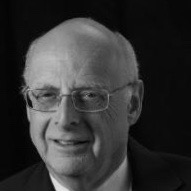Over the past several weeks, my cousins and I have been fighting a losing battle with the municipality of Steinfurt, a small German community in Westphalia. The town was the home of our parents and grandparents. The family estate, Villa Heimann, had existed as a physical symbol of a once-prominent but small Jewish community in this northwest German city of some 19,000 residents. In 1941, my grandparents, Albert and Frieda Heimann, were deported to concentration camps, ending the family’s formal connection with this community.
Recently, the city fathers, in their desire to construct a new fire station, have elected to tear down this highly visible property in the center of town, in effect changing the course of that community’s history.
Our family was approached by opponents of this plan, seeking our endorsement. We readily embraced their efforts, pressing at least for some recognition of our family’s history as a way of continuing the legacy of teaching new generations about the presence and contributions of Jews in this German community.
When I read the English translation of the local newspaper coverage, I was deeply saddened by the undertones of anti-Semitism in the comments being put forth by city officials. Mayor Andres Hoge was quoted: “I would have wished that those who write to me now, had participated in the financing to obtain the façade.
I would have preferred another solution but now it’s too late. This new fire station has become ‘planned through in detail.’ ” The mayor added, “Some form or other of commemoration may be realized.” The mayor and his supporters pushed through the fire house proposal, even though the planning committee had approved its recommendation by only one vote.
Another local leader offered the following: “The volunteer fire department is already waiting almost two years for the new construction. … One must not alienate the guys and women.”
The leadership of the current Jewish community has also sought to achieve a different outcome. “Remember, dear Mr. Mayor, if you and the political factions want to be responsible … then be aware of giving ‘the greenlight’ for the final disposal of Jewish traces of your town,” the community’s spokesperson, Sharon Fehr, wrote in a letter to the mayor and the council.
Similarly, we as family members — the nine living grandchildren and great-grandchildren — made a plea to the Christian democrats, the party in power, arguing that the demolition would be a breach of the promise “to preserve the house or at least maintain its outer walls,” to which the mayor responded, “Nobody here can remember this promise.”
It is striking, as well, and most disappointing, that those in power appear also unwilling to challenge those who have and are committing vandalism. The local press reports that the signage in the Steinfurt train station memorializing my grandparents’ deportation has regularly been vandalized by swastikas and other Nazi-type symbols.
By removing any reference of this family or their place in the community, the town fathers will eliminate any symbolism of a Jewish presence in Steinfurt prior to 1945 and, in the process, are also able to remove any reminder of their own parents’ and grandparents’ atrocities.
In reading both the mayor’s non-supportive response and that of his fellow party member, Hans-Gunther Hahn, who stated, “We can talk about a commemorative plaque, but not an expensive one,” it is quite easy to understand why supporters of retaining the estate within the community are planning to resign as Christian Democratic Union party members.
As we prepare to observe Yom HaShoah, we are reminded that anti-Semitism is not a remnant of the past, but is most certainly alive, as demonstrated by the political scenario unfolding in this small German community.























 More news and opinions than at a Shabbat dinner, right in your inbox.
More news and opinions than at a Shabbat dinner, right in your inbox.